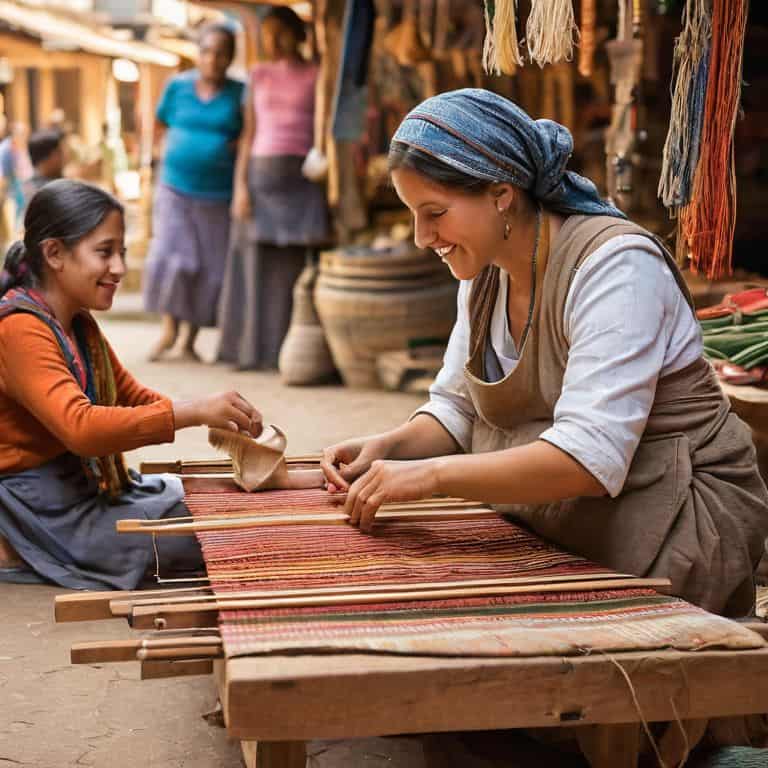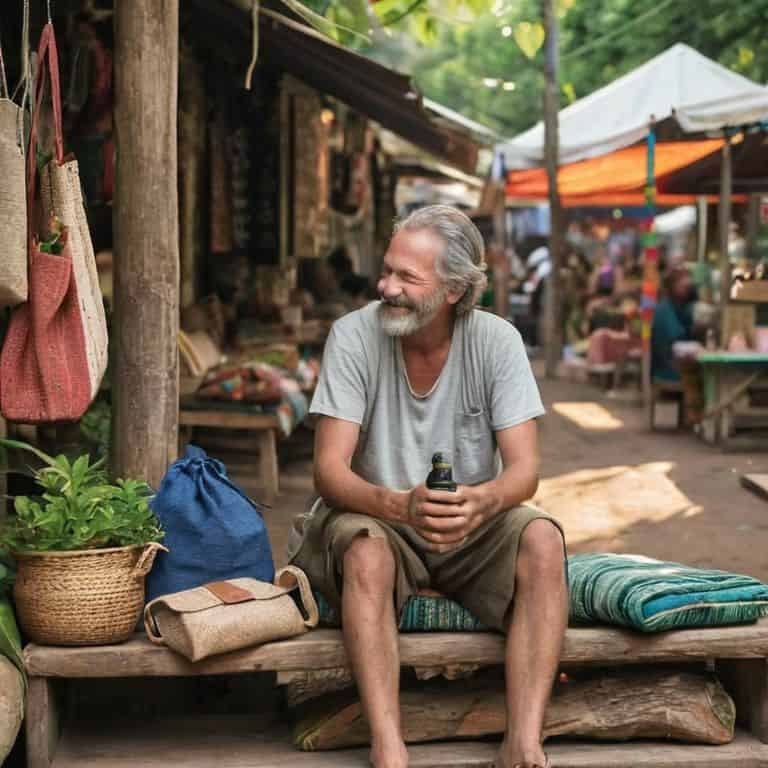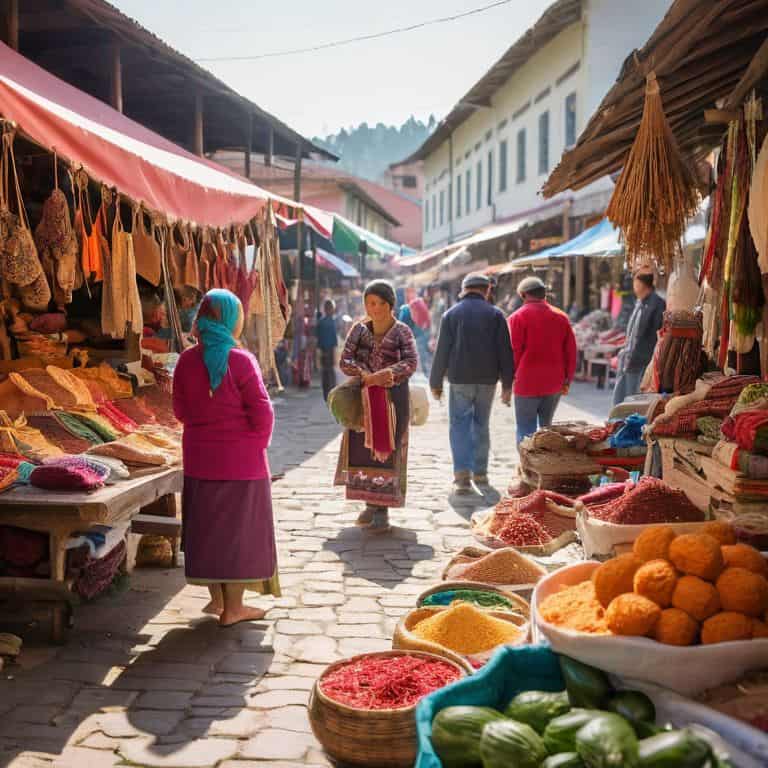I still remember the day I stumbled upon a small, family-owned cafe in the heart of Tokyo, where the owner, Yumi, would carefully craft each dish using locally sourced ingredients. The smell of freshly brewed coffee and the sound of sizzling vegetables on the stovetop immediately transported me to a world where ethical travel wasn’t just a buzzword, but a way of life. As someone who’s spent their fair share of time navigating the complexities of cultural exchange, I’ve come to realize that ethical travel is not just about checking off a list of dos and don’ts, but about immersing oneself in the rhythms and stories of a place.
As I sit down to write about my experiences with ethical travel, I want to make one thing clear: I’m not here to sell you a packaged tour or a set of superficial tips. Instead, I promise to share with you the unvarnished truth about what it means to travel with intention and respect. I’ll take you on a journey through the hidden alleys and markets, where the real stories and flavors of a place come alive. My goal is to inspire you to adopt a more mindful approach to travel, one that prioritizes people and the planet over profit and prestige. So, if you’re ready to ditch the guidebooks and dive headfirst into the world of ethical travel, then join me on this journey, and let’s explore the beauty of responsible wanderlust together.
Table of Contents
Embracing Ethical Travel

As I delve into the world of responsible wanderlust, I’ve come to realize that embracing local customs is crucial to creating a positive impact on the communities we visit. For me, this means opting for eco-friendly accommodations that not only reduce my environmental footprint but also support local economies. It’s about being mindful of the cultural immersion experiences I seek, ensuring that they are respectful and beneficial to the community.
I’ve had the privilege of participating in community-based tourism projects, which have allowed me to connect with local artisans and learn about their traditional crafts. These experiences have been truly enriching, and I believe they are a vital part of responsible wildlife tourism. By supporting local initiatives, we can help preserve the natural habitats and wildlife of the areas we visit.
As I continue on my journey, I’m becoming increasingly aware of the environmental impact of tourism. To mitigate this, I’ve started exploring carbon offset travel options, which enable me to compensate for my carbon emissions. It’s a small step, but one that I believe is essential in reducing the negative effects of tourism on our planet. By making conscious choices, we can ensure that our travels are not only enriching for us but also beneficial for the communities and environments we encounter.
Beyond Eco Friendly Accommodations
As I delve into the world of ethical travel, I find myself drawn to the hidden gems that lie beyond the realm of eco-friendly accommodations. It’s not just about choosing a hotel with solar panels or a recycling program, but about immersing oneself in the local culture and supporting sustainable initiatives that make a real difference.
I’ve had the privilege of staying in community-run homestays, where I’ve learned traditional crafts and shared meals with my hosts. The authentic connections I’ve made in these settings have been truly unforgettable, and have given me a deeper understanding of the local way of life.
Responsible Wildlife Tourism Matters
As I delve into the world of responsible wildlife tourism, I’m reminded of the delicate balance between observation and obstruction. We must be mindful of our presence in these animals’ habitats, ensuring that our desire to witness their beauty doesn’t disrupt their natural behaviors.
By supporting sustainable tour operators, we can promote the conservation of these incredible species and their ecosystems, while also fostering a deeper appreciation for the interconnectedness of our planet.
The Heart of Ethical Travel

As I delve deeper into the world of responsible wanderlust, I’ve come to realize that the heart of meaningful exploration lies in cultural immersion experiences. It’s about venturing beyond the surface level, peeling back the layers to uncover the authentic essence of a place. For me, this means seeking out local artisans, learning traditional crafts, and indulging in the rich flavors of regional cuisine. By doing so, I’ve found that the environmental impact of tourism can be greatly mitigated, as I’m supporting community based tourism projects that prioritize the well-being of both the local community and the environment.
In my quest for a more sustainable travel approach, I’ve discovered the importance of considering the carbon offset travel options available. This not only helps to reduce my own ecological footprint but also contributes to a more conscious and responsible way of exploring the world. By making informed choices, I’m able to immerse myself in the local culture, forging genuine connections with the people and the land.
Through my experiences, I’ve learned that true connection is the key to a more meaningful and lasting impact. Whether it’s participating in a traditional cooking class or simply engaging with the locals, I’ve found that these moments of genuine connection are what make travel truly unforgettable. By embracing this approach, I believe that we can create a more positive and lasting impact on the places we visit, one that extends far beyond our own personal experiences.
Community Based Tourism Projects
As I delve into the world of community-based tourism projects, I’m reminded of the vibrant cultural exchanges that can occur when we support local initiatives. By investing in these projects, we’re not only promoting economic growth but also preserving traditional practices and ways of life. I’ve had the privilege of participating in a few such projects, and the experience has been nothing short of transformative.
One such project that left an indelible mark on my heart was a homestay program in a small village, where I had the chance to live with a local family and learn about their daily struggles and triumphs. It was a truly immersive experience, one that allowed me to connect with the community on a deeper level and understand the impact of responsible tourism on their lives.
Cultural Immersion Through Carbon Offset
As I delve into the world of responsible travel, I’ve come to realize that cultural immersion is not just about attending local festivals or trying traditional cuisine. It’s about understanding the intricacies of a community and making a positive impact on the environment. This is where carbon offset programs come into play, allowing travelers to compensate for their emissions by investing in renewable energy projects or reforestation efforts.
By supporting local initiatives, travelers can not only reduce their carbon footprint but also contribute to the preservation of traditional practices and ways of life. This approach to cultural immersion encourages a deeper connection with the people and the place, fostering a sense of mutual respect and understanding.
Weaving a Deeper Narrative: 5 Intimate Tips for the Ethical Traveler
- Listen to the whispers of the local market: instead of relying on generic guidebooks, I find my way through a place by following the aromas, the sounds, and the stories that unfold in its bustling markets and hidden alleys
- Let the rhythm of traditional folk music guide you: I’ve found that the most authentic experiences often arise from embracing the local arts, like the soul-stirring melodies of regional folk music, which can lead you to secret gatherings and heartfelt encounters
- Indulge in the slow pleasure of local cuisine: for me, the true essence of a place is distilled in its food – the way a dish is prepared, the ingredients that are chosen, and the stories that are shared around the table all weave a rich tapestry of cultural insight and connection
- Walk the path less traveled, literally: ditching the mainstream tourist trails has led me to some of the most profound experiences, from stumbling upon hidden waterfalls to engaging in impromptu conversations with locals who share tales of their ancestors’ lands
- Learn the language of the heart: while linguistic barriers can seem daunting, I’ve found that even the simplest phrases, spoken with genuine intention, can unlock doors to deeper understanding and friendship, reminding us that ethical travel is, at its core, about fostering meaningful relationships between people and places
Embracing the Soul of a Place: 3 Key Takeaways
I’ve learned that ethical travel is not just about making environmentally friendly choices, but also about immersing myself in the local culture and supporting community-based projects that promote cross-cultural understanding
By venturing beyond the typical tourist trail and engaging with local artisans, farmers, and musicians, I’ve discovered that the true essence of a place lies in its people, their stories, and their traditions
Ultimately, responsible travel is about adopting a mindful and compassionate approach to exploration, one that prioritizes the well-being of the people and the planet, and recognizes that the most profound experiences often arise from the unscripted moments and unexpected encounters
The Soul of Travel
Ethical travel isn’t just about treading lightly; it’s about immersing deeply – in the stories, the flavors, and the rhythms of a place – and letting its essence seep into your soul.
Anika Sharma
Embracing the Journey, Not Just the Destination

As I reflect on my own journey through the realm of ethical travel, I’m reminded that it’s the small, intentional choices we make along the way that truly add up. From ditching single-use plastics to supporting local, community-based tourism projects, every decision is an opportunity to weave a more thoughtful narrative. By venturing beyond the brochures and embracing the complexities of a place, we not only become more mindful travelers but also more empathetic global citizens. It’s a journey that requires patience, curiosity, and a willingness to listen to the stories that often go untold.
And so, as we set out on our next adventure, let’s remember that the heart of ethical travel lies not in the destination itself, but in the connections we make and the memories we create along the way. By embracing this mindset, we can transform the way we travel, infusing our journeys with depth, meaning, and a sense of responsibility. As we explore the world with intention and compassion, we may just discover that the most profound souvenirs are not the ones we carry in our luggage, but the lessons we’ve learned, the stories we’ve heard, and the relationships we’ve forged in the unlikeliest of places.
Frequently Asked Questions
How can I ensure that my travel dollars are directly benefiting local communities and not just large corporations?
To ensure your travel dollars benefit local communities, I seek out family-run eateries, stay in community-led homestays, and book tours with local cooperatives – it’s about forging genuine connections and putting money directly into the pockets of the people who need it most.
What are some ways to respectfully immerse myself in a foreign culture without being a disruptive or insensitive guest?
For me, it’s about diving into local rhythms and traditions – like learning a few phrases in the native language, sampling street food, or attending a traditional festival. I also love visiting family-owned eateries, where the owners share stories behind each dish, and supporting local artisans by purchasing handmade crafts.
Are there any certifications or standards that I can look for to guarantee that a tour operator or accommodation is truly committed to ethical and sustainable practices?
When searching for authentic eco-warriors in the travel industry, I look for certifications like Ecotourism Australia or the International Ecotourism Society’s Ecotourism Certification, which guarantee a tour operator’s commitment to sustainable practices and community involvement.
